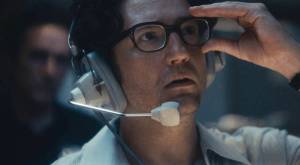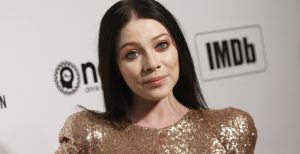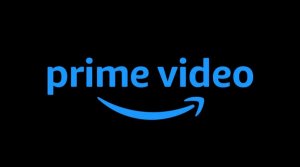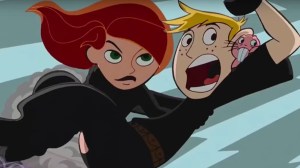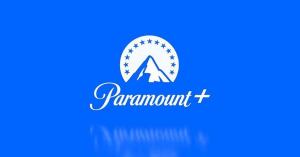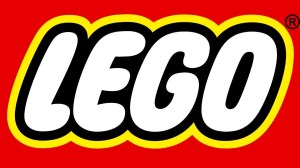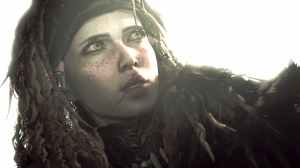We’re just a day away from the debut of The Falcon & The Winter Soldier, the second Disney+ exclusive series set within the Marvel Cinematic Universe. Before its two protagonists, Sam Wilson (Anthony Mackie) and Bucky Barnes (Sebastian Stan), dealt with the series’ globe-trotting adventure, the grave cosmic threats of Avengers: Infinity War and Avengers: Endgame, and a tiff between the Avengers in Captain America: Civil War, it’s worth acknowledging the film that first saw them share the screen — 2014’s Captain America: The Winter Soldier. Winter Soldier has popped back up into the pop culture consciousness pretty regularly in the years since its debut, both for the approach it took to its ensemble of Marvel Comics characters, and for its impressive technical and narrative craft. While the MCU has expanded to bigger and more bombastic storytelling since Winter Soldier, the film still remains one of the franchise’s best — and probably one of its most important.
Videos by ComicBook.com
From the second it was released, it was easy to see that Winter Soldier would have an impact on Phase 2 of the MCU unlike any other. The film took the status quo that had been established within the franchise’s shared universe — particularly with regards to SHIELD, which had factored heavily into nearly every previous film installment and had already spun out into its own television series — and dismantled it. The film’s plot twist regarding HYDRA’s decades-long infiltration of SHIELD provided a fascinating mystery box in and of itself — not only did it posit the idea that the MCU’s evils could stretch beyond massive CGI villains or big blue beams of light in the sky, but it created a snowball effect of storytelling that still reverberates in the franchise to this day. The HYDRA reveal showcased just what kind of overarching storytelling potential the MCU had as a singular shared universe — long before Marvel’s Netflix shows began to add significance to the Battle of New York, and long before “The Snap” and “The Blip” became massive turning points in the present-day MCU. While that kind of narrative storytelling has become a given for some fans of the MCU (so much so that they’ve spent the past two months forcing it onto WandaVision), it was still a relatively novel concept around the time of Winter Soldier — which makes the effectiveness and longevity of it all the more impressive.
As much as Winter Soldier brought significant and sweeping plot additions to the MCU, its true success comes from its various character studies, with both new and returning players in the film being treated in fresh ways. For its main titular character, Steve Rogers/Captain America (Chris Evans), the film was a much-needed shot in the arm for his characterization, providing a natural evolution to the genuine, mild-mannered nerd he was in Captain America: The First Avenger, and the almost irritatingly altruistic “old man out of time” in The Avengers. In Winter Soldier, both of those sets of character traits were meshed together pretty cohesively, with end results that were both incredibly moving (beginning to tackle the sense of sacrifice, PTSD, and survivor’s guilt that Steve was now grappling with) and incredibly charming (his bucket list of pop culture touchstones that he missed out on). It also allowed for Evans’ Steve Rogers to fully become what Captain America has represented on a larger level — a paragon for hope and earnestness, one who simultaneously is undeniably part of our society, while also being far enough removed from it to be able to advocate for a better tomorrow. While some nuggets of that were arguably lost along the way in some of Steve’s latter MCU appearances, it still created an emotional bedrock that even the most casual fan was able to resonate with.
The same can be said for the approach to the supporting characters in Winter Soldier, all of whom are subsequently elevated by the film’s impactful, character-driven tone. Natasha Romanoff/Black Widow (Scarlett Johansson) was able to shine in a way that fans hadn’t yet gotten to see in the MCU, with the weight of her own role in the superhero world being felt in every fight scene or line of dialogue. Nick Fury (Samuel L. Jackson) was given some incredibly memorable moments as well, and many of the film’s new characters, including Sharon Carter (Emily VanCamp), Brock Rumlow/Crossbones (Frank Grillo), and even Batroc the Leaper (Georges St-Pierre), were all introduced in ways that fans undeniably wanted to see more of. Nowhere is the film’s ethos towards its characters more apparent than with Sam and Bucky themselves, each of whom represents different sides of that coin. Winter Soldier provided a significant first appearance for Sam and who he is as a person, while also leaving room for more development and details down the line. The film also adapted Bucky’s metamorphosis into The Winter Soldier in a way that was both incredibly faithful to the comics and uniquely inventive. If anything, the moments in the MCU that walked back some of Winter Soldier‘s characterization — Natasha’s controversial and misogynistic backstory in Age of Ultron, Sharon being treated as an afterthought in Civil War, and Bucky arguably being “Flanderized” in some of his latter and smaller MCU appearances — are all a testament to just how effective the film is.
Winter Soldier was also arguably the first MCU installment to unabashedly play with conventions of another film genre, featuring send-ups to the establishment-challenging conspiracy thrillers of the 1970s and 1980s. This ranged from the film’s themes to its general aesthetic to its stunt casting, with the villainous Alexander Pierce being played by Robert Redford, the star of some of the 1970s’ most iconic political dramas. Sure, it might not be the “surreal avant-garde political thriller” that some fans have characterized it as, but it did inject elements that hadn’t been seen in Marvel’s traditional hero’s journey, and subtly dismantle some of the tropes that the franchise had already put in place. It’s easy to draw connections between Winter Soldier‘s genre-bending approach and where the MCU is now, with installments like Thor: Ragnarok and WandaVision continuing to defy what fans expect from the franchise. While an argument could be made that the MCU was eventually destined for that sense of variety in order to further endure, Winter Soldier undeniably exacerbated that timeline, all while creating a genuinely fun cinematic experience along the way.
A lot can (and has) been said about Captain America: The Winter Soldier, so much so that some have begun to doubt its place in the pantheon of great Marvel Cinematic Universe movies. But as we get further away from the film’s release, it’s clear that its impact on the overall franchise and the way it chooses to tell its stories have only further revealed themselves. With The Falcon and the Winter Soldier on the horizon, that sensibility is sure to only grow — and for good reason.
The Falcon and the Winter Soldier debuts on Disney+ beginning Friday, March 19th.
Want to learn more about the latest Marvel Studios series? Check back on ComicBook CRAM every day leading up to the premiere of The Falcon and the Winter Soldier, and click here for even more articles and videos to find out everything you need to know about the new show!
If you haven’t signed up for Disney+ yet, you can try it out here. Note: If you purchase one of the awesome, independently chosen products featured here, we may earn a small commission from the retailer. Thank you for your support.


